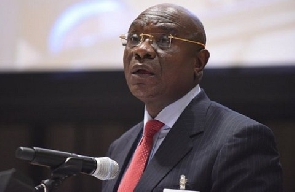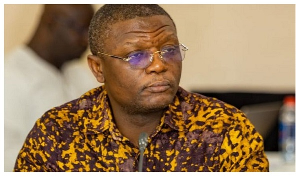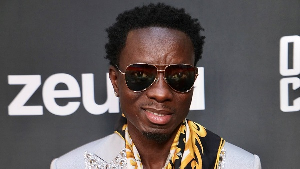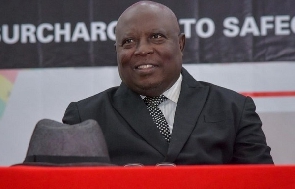President John Agyekum Kufuor should be the last person in the Executive branch of State to call for restrained attacks on the various arms of government. A dyed-in-the-wool critic and a known street demonstrator and agitator in his days in opposition barely a decade ago, it is definitely the eighth wonder of the world that the unrepentant oppositionist of old should he agitated by legitimate and constitutional challenges raised by ordinary citizens of the land.
Firstly, we need to state forthright that our constitutional order does not create a monarchy, a deity, or a demi-god. Ordinary citizens of the free and democratic state of Ghana are eligible to offer themselves for election to the high office of State.
Secondly, the said offices and positions encumbered by these elected and appointed of! ficials are for limited or fixed terms.
Thirdly, by effluxion of time, such officers must necessarily vacate these self-same offices unless re-elected or re-appointed into office.
In the light of the foregoing, it is clear that persons holding such offices have a limited authority and are circumscribed by the fundamental law of the land, the Constitution. More importantly, our constitution is clear in the fact that all power resides in the people of Ghana from whom these powers are exercisable. Consequently, the people and for that matter any Ghanaian of sound mind and intellect has the inalienable right to criticise and challenge the exercise of any such state authority and power by any such elected or appointed State Official. In the same way, no elected or appointed State Official is immune from challenges and/or criticism.
Of course, challenges and criticisms may be unpleasant and in some cases distressful, but these emotional pains and distresses may not be the reason for withholding the inalienable right of the citizen to challenge or criticise paid State Officials with the intent of keeping them in check.
Undoubtedly, a lot of good time and energy has been poured out in the electronic and print media over the last twelve years of our latest democratic path. When the now NPP officials had a lot of time on their hands during their furlough in opposition, the Aprakus, Kan-Dapaahs, Osafo Marfos, Kwamena Bartelses, Nana Akufo Addos etc were on all FM stations, hammering and pushing forward their political agenda and views claming they had better and more knowledgeable men who could do a better and more efficient job for the state if given the opportunity.
Of course, in the process they dissected and bisected the performance of the then ruling NDC Government?s statements and actions.
The Supreme Court and the High Courts were also their haven as they sought refuge and sustenance in their challenges of literally each and every decision of the then ruling government. It is of academic interest to document all the numerous judicial challenges mounted by the then opposition NPP with the full connivance and participation of the then Mr. J.A. Kufuor now President Kufuor.
Wednesday 15th March, 2006, now President J.A. Kufuor committed two major constitutional and political goofs when he swore in 2 new judges to the Supreme Court of Ghana.
In a post-swearing in comment which is normally reserved for words of congratulation and encouragement, President Kufuor is reported to have: "bemoaned the rate at which individuals are challenging the authority of the three arms of government and has consequently asked Ghanaians to have a sense of restraint to such a practice if they want to live under the constitution of the Republic. Expressing concern that his position as President had become like a football being kicked about on the airwaves every morning in the country, the President said within a month or two, the authorities of the Speaker of Parliament, the nations third in the chain of command, and the Chief Justice, the nation?s fourth most powerful man, were being impugned and tested by some members of the public who were lawyers. The President who expressed worry about the recent development of challenging the authority of the arms of State at a ceremony at which he administered the oath of office to 2 new judges of the Supreme Court did not mean that he, as President, the Speaker and the Chief Justice were above the law".
Two quick points. Firstly, the President?s reference to hard criticism of the 3 "powerful" officers of State is in bad taste and a potential subversion of the authority of the citizen to contribute, criticise and challenge through legal constitutional path the exercise of the powers of State by the people we ourselves have elected into office. So when did we soon elect the three people into office with a caveat that they were not to be challenged through lawful means?
Clearly, the challenge of the extent of authority of the Speaker by Mr. Doe Adjaho on the ROPAB issue is within the confines of the law. Whether he wins or loses is a matter for the Judiciary?s interpretation.
Mr. Bright Akwetey?s stated case of misconduct against the Chief Justice is even more intriguing. A formal complaint was made to the President qua President and strangely enough, it was the Presidency, which made the matter public with a surprising quick riposte that the President had appointed a Committee of five to probe the contents of the petition.
Pundits were surprised that no prior preliminary investigation even by the Attorney General?s office or the security agencies was indicated to have been undertaken to verify the authenticity or otherwise of some of the damning allegations since media public by courtesy of some private papers following the lead from the Office of the President.
Surely, Dr. J.B. Danquah must be turning in his grave to be hearing that his root is today ruing challenges to offi! cers of state. Here lies a man who feared not to challenge the actions and acts of the Osagyefo, Dr. Kwame Nkrumah, as Head of State; He did not accept that Dr. Nkrumah was infallible. He asserted that power resides in the people and the people were at liberty to challenge any perceived or real misuse and abuse of the office of State. Last week, the Law School highlighted one of the premier constitutional law cases in Ghana, In Re Akoto. President Kufuor and the Asantehene were invited as the grand patrons. The purpose of the lecture was to immortalise one of the essential rights of the Ghanaian, the right to liberty and freedom of association and thought. It was as well that the President was invited and it is hoped that if he did attend, he came out of the lecture strengthened and energised to hold back his distress and emotion and to encourage the right of the citizens to criticise, challenge and speak their minds whether on radio or television or in pr! int against what they perceive as State/Official acts which do not appear to be in their best interests. Surely, the forum for President Kufuor?s latest intervention is not only unacceptable but also highly prejudicial. As he swears in two new Supreme Court Judges, it is hoped that his statements were not intended to send them off to the Bench with the mandate to restrain public speech and challenges. Our constitution specifically opens up with an injunction on each Ghanaian to go to court to ensure the compliance and enforcement of the Constitution of the Republic particularly when an infringement appears imminent or has occurred. It is hoped that the President?s unfortunate remarks in the presence of the 2 judges would be hurriedly "unlearnt" by them and also by all others who read and listened to them. President Kufuor may disagree with Mr. Doe Adjaho and Mr. Bright Akwetey?s legal and constitution! al actions, but they certainly do not provide basis for literally directing a restraint of such lawful actions. The latter request is clearly in breach of the Constitution since it will be denying citizens their right to challenge acts and actions of elected state officials and appointees. Little wonder many in government today have from intolerant and bossy, from Party Chairmen to Special Assistants to the Party Police, Ministers etc. Under our law, the concept of "prior restraint" is illegal and unconstitutional. No restraint is permissible on free speech, but the law comes into play after free speech has been breached. Herein lies the unconstitutionality of the President?s statement.
When the last critic?s mouth is sewed, democracy dies. As for Mr. President, No Sir! We have come too far to have cur months sewn up!!!



















